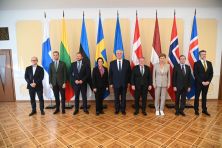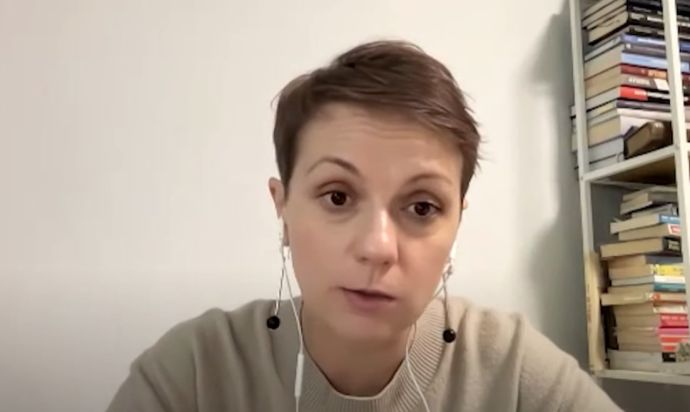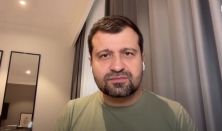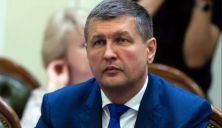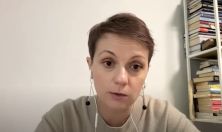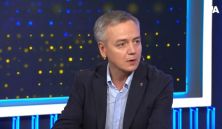A Ukrainian journalist is murdered in Russian captivity, on the verge of her salvation we talk about the tragedy with Natalia Humeniuk a Ukrainian journalist and author specialising in foreign affairs and war reporting, a co-founder and CEO of the Public Interest Journalism Lab and a co-founder of the independent media Hromadske, a media outlet that Viktoria Roschina worked for.
— Since Victoria Roschina, a brilliant and brave Ukrainian journalist, was held in captivity in Russian-occupied territories since August 2023, when she most probably left for Melitopol, where the latest information about her physical presence is known, quite a few international journalistic and media organizations were involved in trying to determine her whereabouts. Unfortunately, at this stage, international organizations have limited leverage to influence Russia. A decade ago, a call to free a journalist might have pressured Russian President Putin, but that approach is no longer effective.
In this case, many colleagues were helpful at different stages, trying to assist, but they are not capable of making an impact. It’s not about ignoring the situation.
We must understand that many Ukrainian journalists are currently in Russian captivity. In occupied Crimea, citizen journalists have been in detention for quite some time, making it difficult to share their stories.
However, in the case of Victoria Ross, there was a bit more attention. We should note that there were limits to how much we knew to organize a larger campaign because we did not know exactly where she was for quite some time.
The usual international orders have their limits regarding influence. There is a complicated process for prisoners’ exchange, with some countries facilitating this, including cases involving children taken to Russia. There is a very limited capacity for the world to address this through standard channels, so we need stronger support from the international community. Ukraine is a democratic state, making it possible for international reporters from around the globe to come to Ukraine and work.
Compared to 2022, there is now proper coverage of the war against Ukraine in international media, which is more than expected. With the tragic news of Victoria’s death, who was not widely known internationally, it’s important to acknowledge that her colleagues were aware of her. However, not every Ukrainian knew her, even if there is interest in her story. Major publications are reporting on this tragedy, but there is a broader issue in journalism that, as worse events occur and similar crimes happen, interest often declines.
As Ukrainian colleagues, we must consider how much we wrote about Victoria and whether we had the resources to discuss her situation. We must understand that many global events demand our attention, and we have limits to engage with other conflicts and tragedies.
It’s important to stress that we are aware of what is happening in occupied territories. I work on a project documenting war crimes, and we know that people who have been imprisoned in regions like Zaporozhzhia, including Melitopol, have been humiliated, beaten, and tortured. This is common for any independent person illegally detained in occupied territories.
Most people we talk to who went through Russian captivity were beaten or tortured. This has been happening for two and a half years, and we have ample information about it. While details about specific places may be lacking due to the closed nature of these territories, we know enough. The message is that for Ukraine, occupation is not a choice; it brings severe risks to the people.
Victoria did not survive this imprisonment. We don’t know if she had half a year or eight months, but the chances were still slim. Time is not on the side of those kept in detention. They need to be freed because the longer they remain, the greater the risk. The Russian occupation of these territories is intolerable.
There is something unprecedented about the International Criminal Court issuing a warrant for Vladimir Putin one year after the full-scale invasion, which is unusual and fast. There are now six arrest warrants against Russian leadership for attacks on Ukrainian infrastructure. The ICC is taking on strategic cases against senior Russian leaders, which is unexpected.
The process is ongoing, and it is more positive than anticipated in 2022. Unfortunately, discussions about creating a special tribunal for all crimes of aggression are progressing more slowly than expected, but it should happen. Most investigations will take place in Ukraine, mainly because the Ukrainian state has a capable law enforcement system. They need support; the General Prosecutor’s Office of Ukraine has registered over 35,000 alleged war crimes, a significant number that requires assistance.
As we enter the third year of the war, Ukrainians expect more trials and investigations. The process is moving along, but not as quickly as desired. Legally, I’m not a lawyer; I’m a journalist, but I collaborate with lawyers. Journalists are protected, and attacks against them, like against religious leaders, are legally considered more severe crimes because they should be protected.
There should be more legal accountability for crimes against journalists. They have the right to operate in their territories.
As Victoria’s colleagues, we want to know who is responsible and who is in charge. It is partly our responsibility. Given the numerous tragedies, we must follow her individual case to fulfill our moral obligation as her friends and colleagues.
Read also: Interview on UATV English: Linas Linkevicius, LT ex-MFA – how to use The NATO Force – what is it?
